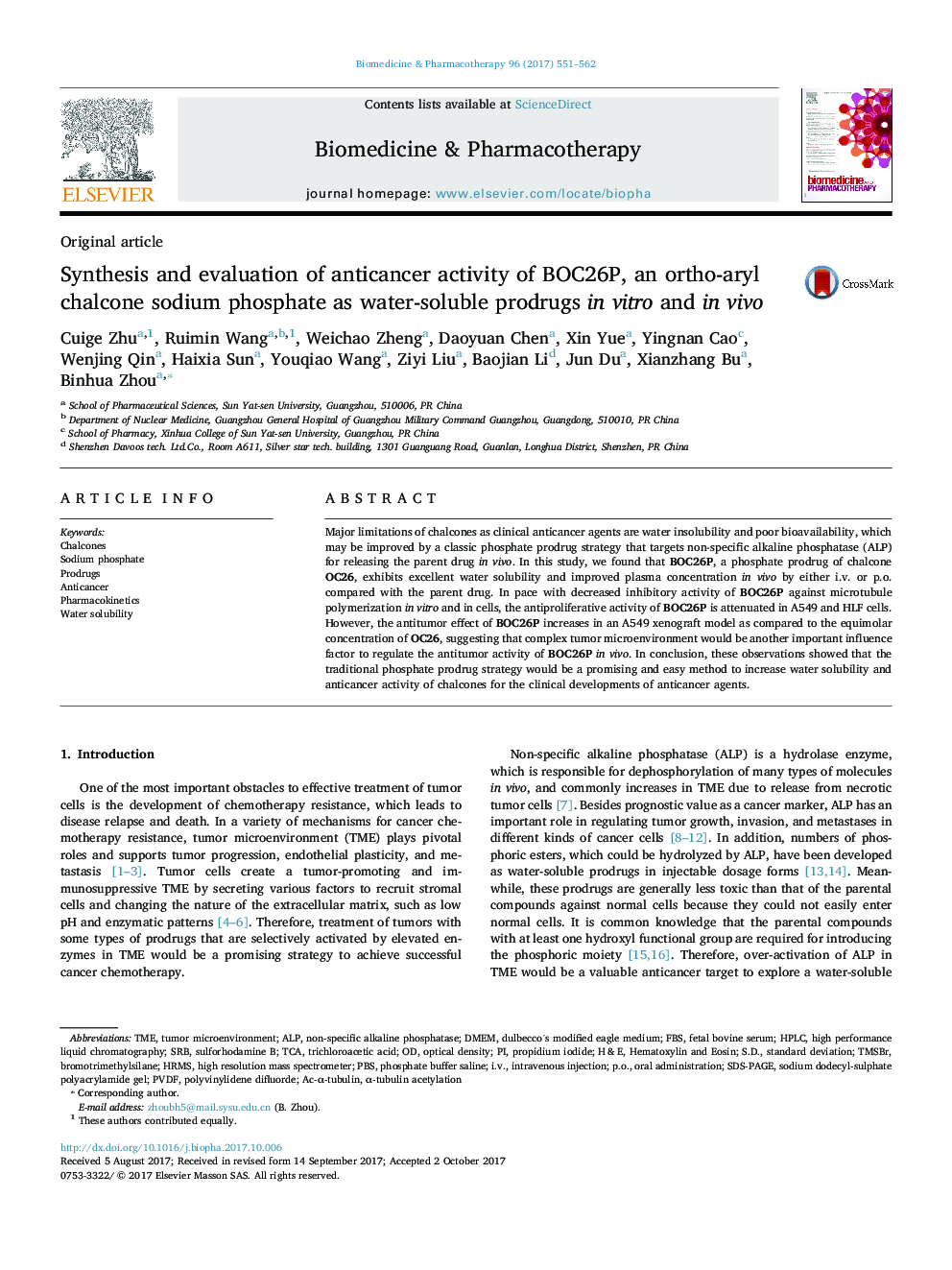| Article ID | Journal | Published Year | Pages | File Type |
|---|---|---|---|---|
| 5552480 | Biomedicine & Pharmacotherapy | 2017 | 12 Pages |
Major limitations of chalcones as clinical anticancer agents are water insolubility and poor bioavailability, which may be improved by a classic phosphate prodrug strategy that targets non-specific alkaline phosphatase (ALP) for releasing the parent drug in vivo. In this study, we found that BOC26P, a phosphate prodrug of chalcone OC26, exhibits excellent water solubility and improved plasma concentration in vivo by either i.v. or p.o. compared with the parent drug. In pace with decreased inhibitory activity of BOC26P against microtubule polymerization in vitro and in cells, the antiproliferative activity of BOC26P is attenuated in A549 and HLF cells. However, the antitumor effect of BOC26P increases in an A549 xenograft model as compared to the equimolar concentration of OC26, suggesting that complex tumor microenvironment would be another important influence factor to regulate the antitumor activity of BOC26P in vivo. In conclusion, these observations showed that the traditional phosphate prodrug strategy would be a promising and easy method to increase water solubility and anticancer activity of chalcones for the clinical developments of anticancer agents.
Graphical abstractDownload high-res image (155KB)Download full-size image
